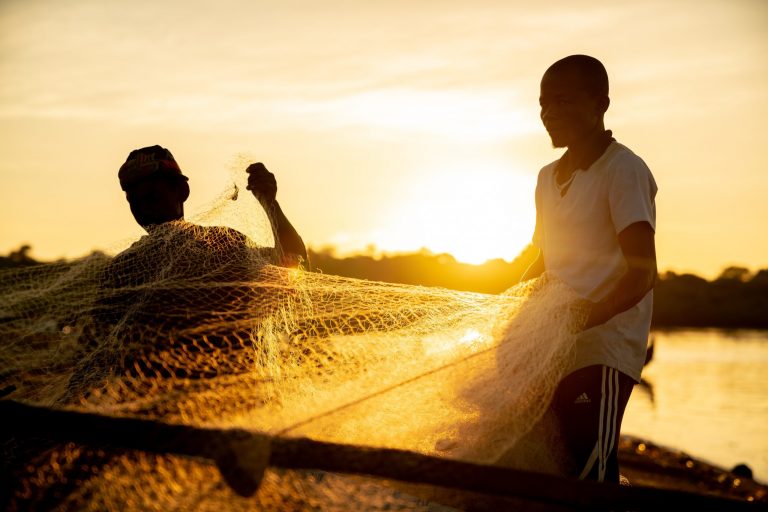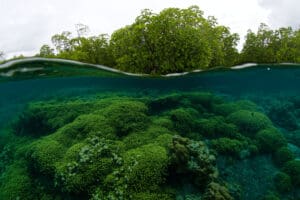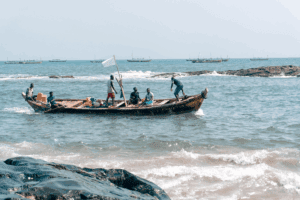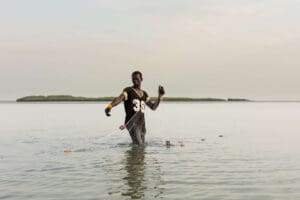The highly destructive fishing method will be banned in a new exclusion zone stretching from the water’s edge to two nautical miles offshore.
The Government of Madagascar has announced a complete ban on nearshore bottom trawling in the latest move towards securing sustainable fisheries for the island nation.
A new nearshore exclusion zone is intended to protect Madagascar’s rich marine ecosystems, which include globally important coral reefs and carbon-rich seagrass beds, as well as fisheries that are vital for the food security of hundreds of thousands of small-scale fishers.
Bottom trawlers, vessels that drag weighted nets over the seabed to scrape up fish, land around 19 million tons of seafood annually, almost a quarter of marine landings and more than any other fishing method. The practice is hugely devastating for vulnerable seabed habitats as well as those who rely upon them to eat and to live. Delicate habitats like coral reefs and seagrass meadows that provide food and shelter for a huge diversity of sea creatures can be ripped to shreds and may never recover.
In Madagascar, bottom trawlers mainly target shrimp for export to the EU and China. With growing demand in recent years, fishing from both industrial and small-scale sectors has intensified pressures on the stock, leading to overfishing.
In a significant win for small-scale fishers and marine biodiversity, the new law specifies that industrial shrimp fishing is now only authorised beyond two nautical miles – nearly four kilometers – from the coast.
The ban comes as the Government of Madagascar begins implementing its Plan Emergence Madagascar (the Madagascar development plan) to reform the fisheries sector and safeguard fisheries sustainability.
In addition to the exclusion zone, the trawl fishery will move to a permit system to help regulate access. Permits will be publicly available, bringing the fishery into alignment with the internationally recognised FiTI transparency Standard.
Industrial bottom trawlers will also be required to adhere to catch quotas and to carry out mangrove reforestation in their fishing areas. Mangroves provide critical nursery habitat for many marine species, including shrimp.
Blue Ventures is supporting the Government with its efforts to improve transparency in the fisheries sector. “It is a significant step for Madagascar to close such a large area of its coastal waters to bottom trawling and allow the country’s rich seabed ecosystems to recover. The new two nautical mile limit demonstrates what can be achieved through dialogue between the government, the fishing industry, and civil society” said Peter Wilson, country director for Blue Ventures in Madagascar.
Read about the destruction caused by bottom trawling and why we must protect the bottom of the ocean: Into The Deep.
Find out about ‘The overwhelming economic case for protecting our seas’, including the bottom of the seas.
Learn to take charge of your future with Malagasy communities in ‘Madagascar’s fishing communities unite to take charge of their future’.


















